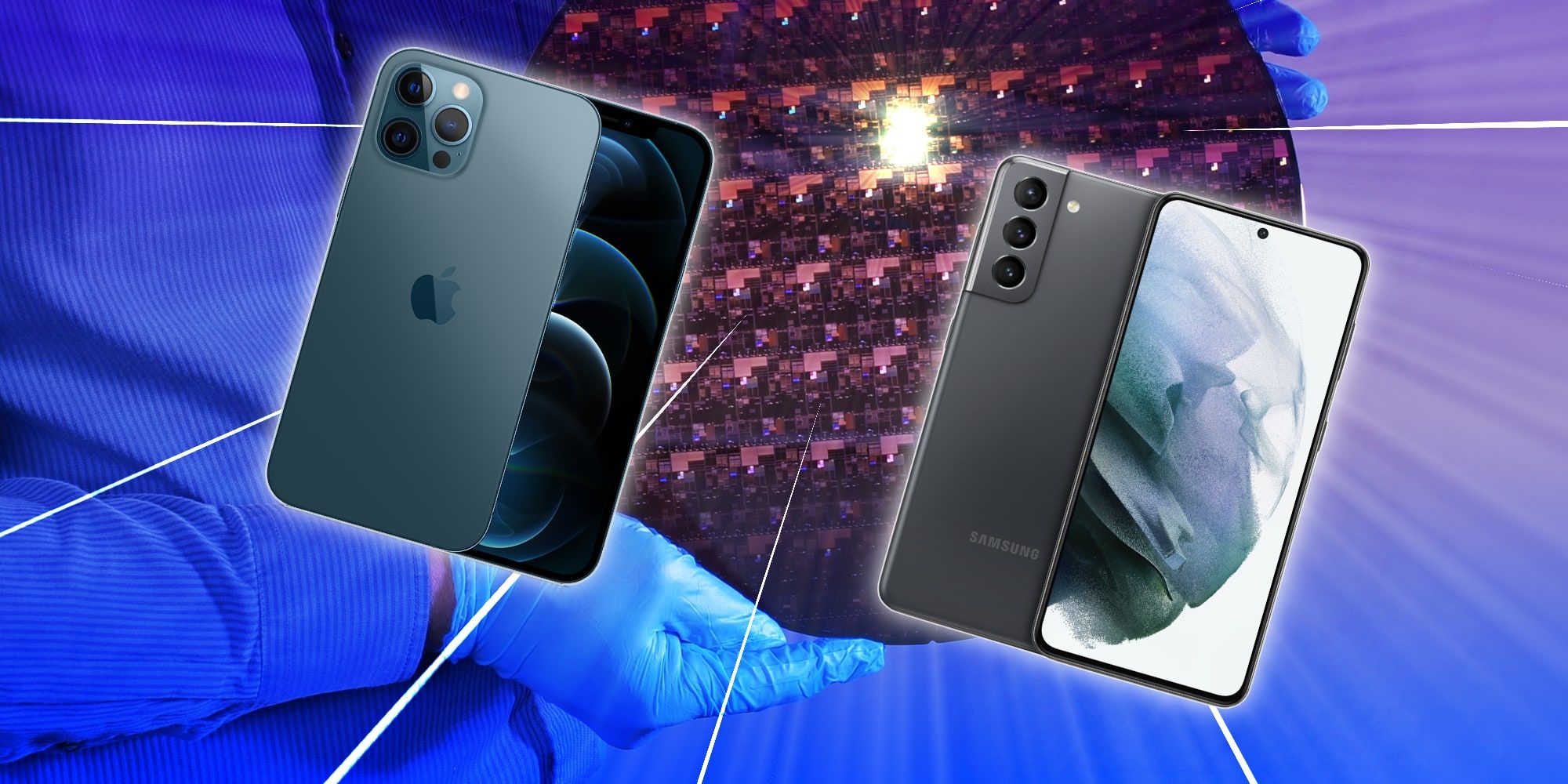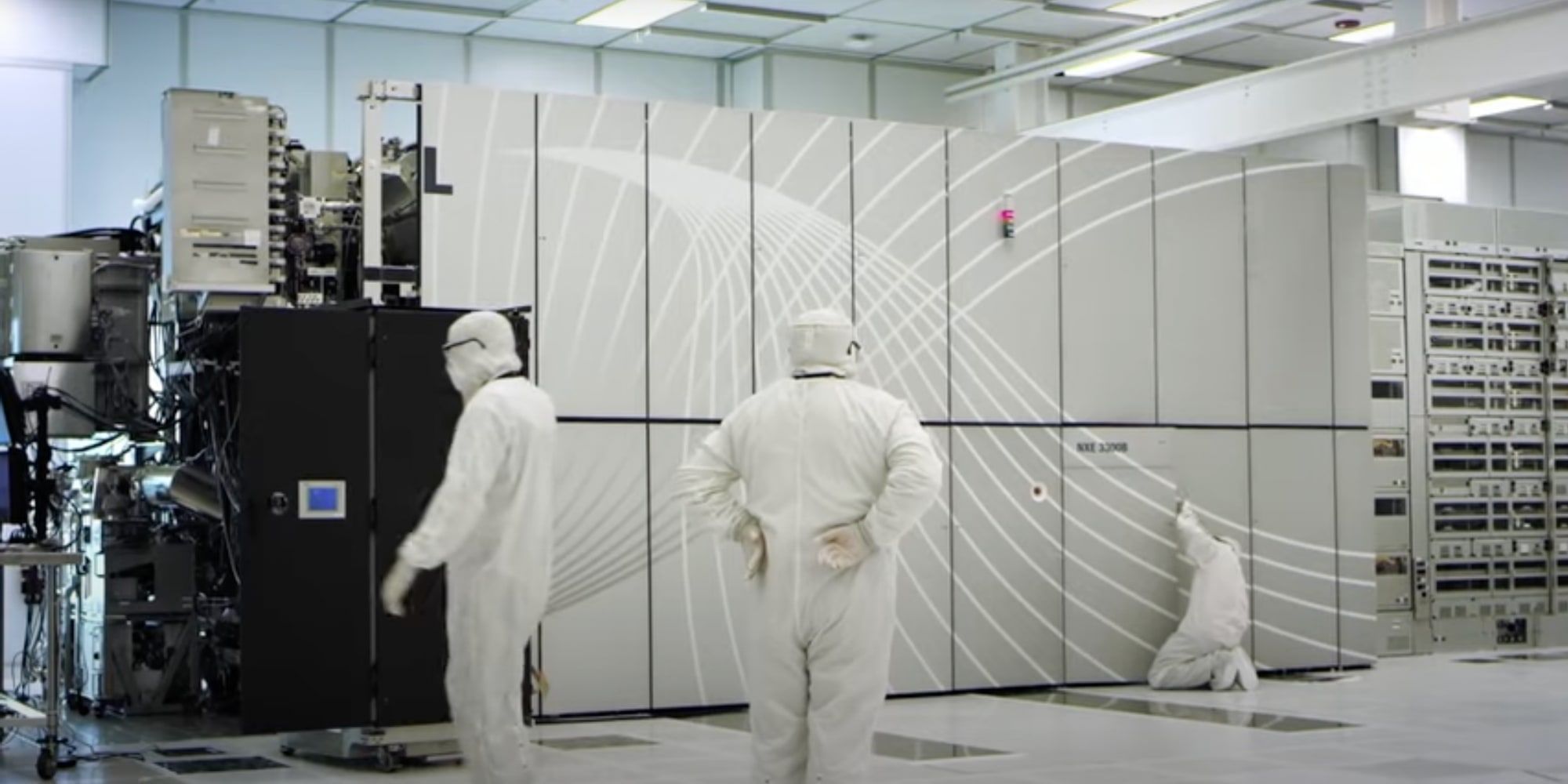
In a big breakthrough, IBM announced that it has developed the world's first chip to use a 2-nanometer process, which could benefit both Apple's iPhone and Android smartphones. While mass production of systems-on-a-chip using this advanced technology are likely years away, this is a significant leap over the current generation's 5-nanometer manufacturing process, leading to greater battery life and faster performance.
The 5-nanometer process manufacturing just made its way into smartphones in the last few months, with Apple introducing its A14 chip with the iPhone 12, along with the M1 processor that powers the latest iPad Pro and Mac computers. In the Android ecosystem, Qualcomm and Samsung both launched 5-nanometer chips as well. The Snapdragon 888 and Exynos 2100 are featured in U.S. and international versions of the Samsung Galaxy S21 and Qualcomm's chip is common in most new flagships arriving in 2021.
IBM announced the leap from the current 5-nanometer process node to an incredibly small 2-nanometer technology, pointing out that it was the first with 7-nanometer and 5-nanometer as well. IBM typically does not mass-produce these chips, so it is more likely that it is looking to license the process to chip foundries to turn these into usable technology that may power future iPhone and Android phones. TSMC and Samsung are two leading mobile processor manufacturers and they have been refining their own technologies to create smaller, faster, and more efficient chips. However, the latest news suggests they are working toward the 3-nanometer semiconductor node, making IBM's the most advanced to date.

IBM offered comparisons between its new 2-nanometer process and the 7-nanometer scale that is still in use in many of 2019's and 2020's flagship smartphones. IBM estimates that the chips manufactured with this new system might achieve as much as 45-percent higher performance than the most advanced designs possible with the 7-nanometer node. When optimizing for power efficiency the new technology might use up to 75-percent less energy. It is also possible to find a middle ground with both better efficiency and higher performance.
IBM also provided examples of what this might mean to owners of these devices, suggesting a potential battery life of up to four days. Google's Pixel 5 already offers up to 48 hours of use with Extreme Battery Saver mode, but this limits some functions. With the new chips coming in the future, the four-day battery life may allow for normal usage. Of course, faster chips allow smartphones to be smarter, possibly providing greatly improved low-light performance for video, something that has become common with stills, but difficult to achieve in the fraction of a second between each video frame. More powerful chips should improve on-device artificial intelligence and provide better LiDAR scans with an iPhone. IBM isn't as prominent in consumer awareness in recent years but is still quite strong in enterprise systems and it continues to break new ground in the research and development of computer technology.
Source: IBM
from ScreenRant - Feed https://ift.tt/3euRmat


0 Comments